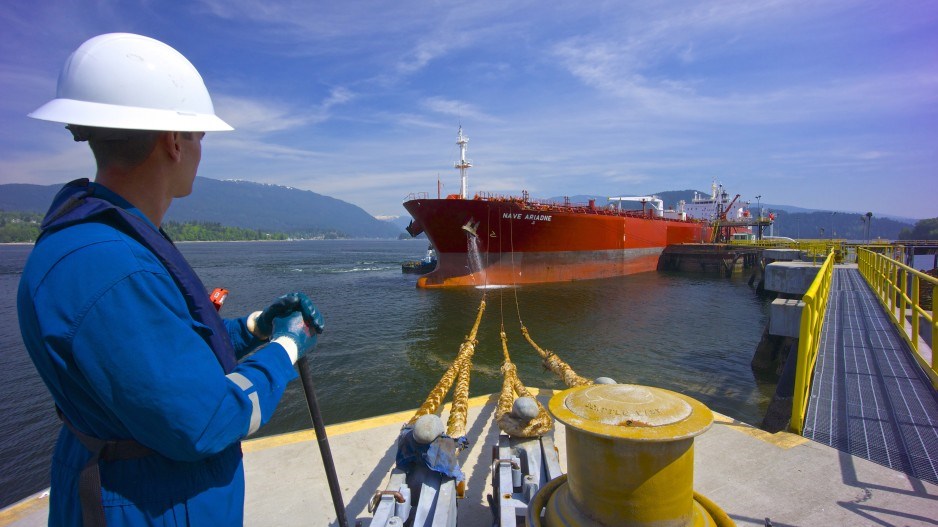The first of an anticipated bevy of legal challenges to the federal government’s approval the Trans Mountain pipeline expansion has been filed.
Ecojustice, the Raincoast Conservation Foundation and Living Oceans Society on Tuesday (December 20) filed for a judicial review of the federal government’s approval of the expansion.
The application argues that federal cabinet broke the law in accepting the National Energy Board’s “overly narrow interpretation” of laws protecting resident killer whales.
“Kinder Morgan’s project would cause a seven-fold oil tanker increase through the Southern Resident killer whales’ critical habitat,” Paul Paquet, a senior scientist with the Raincoast Conservation Foundation, said in a press release.
“Not only will this increase the risk of spills in their habitat but it will lead to more noise in an already noisy ocean that interferes with their feeding and communication. We have consistently said that approving this project is approving the probable extinction of the Southern Resident killer whales. We can’t let that happen.”
Just prior to announcing its approval of the expansion, the Trudeau government announced a $1.5 billion Oceans Protection Plan, which includes a commitment to better protection measures for marine mammals to reduce the possibility of collisions with ships.
The biggest concern for roughly 80 southern resident killer whales is the impact of noise from increased tanker traffic, since whales use sonar for navigation.
According to Kinder Morgan’s own estimates, the increase in tanker traffic that will result from the pipeline expansion is 14%. But oil tankers aren’t the only type of marine traffic that would be increasing. Cruise ship traffic has also increased in Vancouver and so has container ship traffic.
According to a B.C. government study on marine traffic, 78% of all marine traffic occurs in Southern B.C. through the Strait of Juan de Fuca and Point Roberts, and from 2011 to 2012, all marine traffic in B.C. increased 17%.
Presumably, any increase in other marine traffic, whether cruise ships or container ships, would also have an impact on killer whales.
"The whales are already in jeopardy," Paquet told Business in Vancouver. "Given the current conditions, and current threats, this is just additional. They've already hit a threshold, so the likelihood of extinction is pretty high right now in the next 100 to 150 years."




